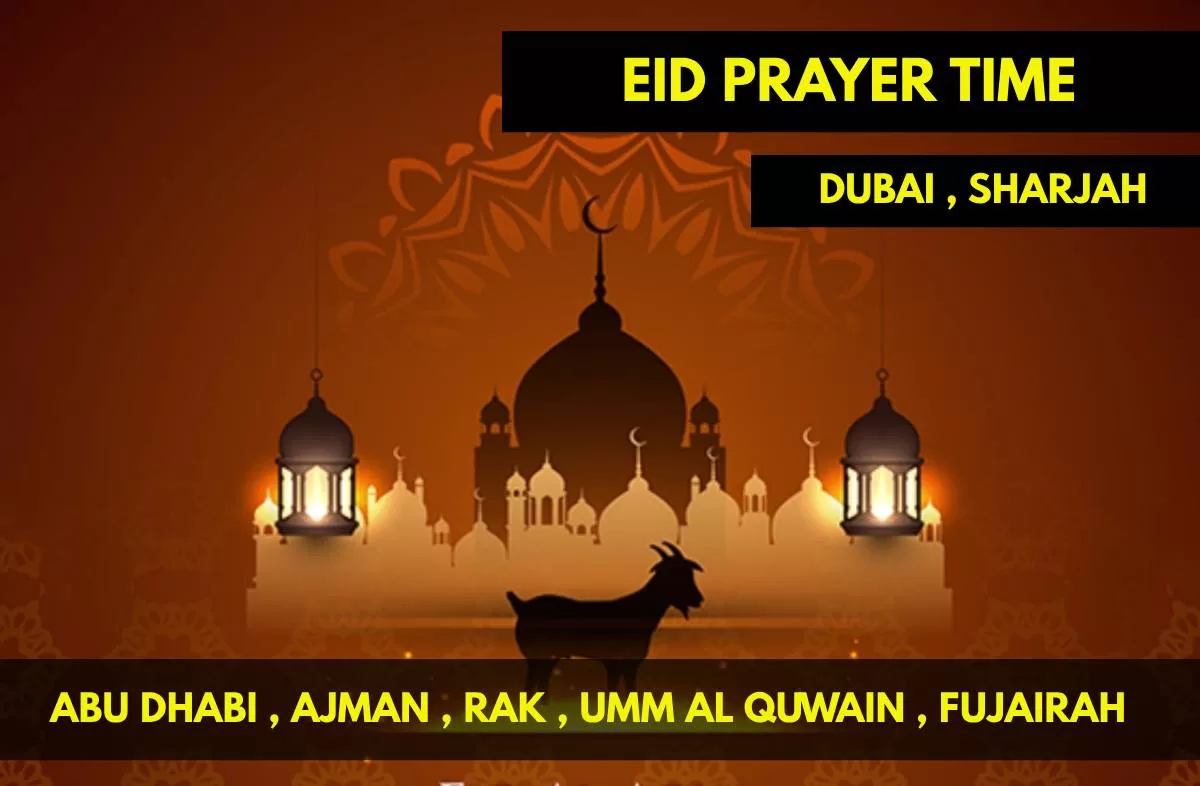Prayer timings in Dubai, Abu Dhabi, Sharjah | Shortly after sunrise, special prayers are held at mosques and spacious open areas known as Eid musallahs. These locations serve as gathering points for individuals and communities to come together and partake in the significant prayers associated with the Eid celebration.
Commencing on Tuesday, June 27, the UAE will observe its longest break of the year to commemorate Arafat Day, a significant day in Islam, as well as the Eid Al Adha festival. This extended break will provide residents of the UAE with a six-day holiday, taking into account the regular Saturday-Sunday weekend. On Wednesday, June 28, Muslims throughout the UAE will gather in mosques and spacious open areas known as Eid musallahs to offer special prayers. These prayers are typically held shortly after sunrise and the prayer spaces generally remain open from the Fajr prayer onwards. The prayer timings for various Emirates are:
- Dubai: 5.50am
- Sharjah: 5.47am
The accurate timings for the special prayers on the first day of Eid have been confirmed in Dubai and Sharjah. It is important to note that the timings provided below are calculated based on the assumption that the prayer will be conducted approximately 20 minutes after sunrise:
These timings serve as a guideline for residents and worshippers to plan their schedules accordingly and ensure they participate in the Eid prayers at the designated times. It is advisable to double-check with local mosques or authoritative sources for any potential changes or variations in the timings.
- Abu Dhabi: 5.53am
- Ajman: 5.47am
- Umm Al Quwain: 5.46am
- Fujairah: 5.44am
- Ras Al Khaimah: 5.44am
How the Eid prayer is offered?
The Eid prayer is a collective prayer that involves two units, known as raka’ahs. During the first raka’ah, the Imam leads the worshippers in offering several takbirs (saying “Allahu Akbar” or “God is the Greatest”) before reciting the surah Fatiha and another chapter from the holy Quran. The same process is repeated in the second raka’ah, with multiple takbirs as well.
Following the completion of the prayer, the Imam delivers a two-part sermon, which is an integral part of the Eid gathering. It is customary for Muslims to attentively listen to the sermon, which may cover various aspects of faith, community, and the significance of the occasion. After the sermon, individuals embrace their loved ones, exchanging greetings of “Eid Mubarak” (meaning “Blessed Eid”), and commence the day’s festivities.
This practice emphasizes the importance of unity, family, and celebration during Eid. It serves as a moment of joy and togetherness, as family and friends come together to express their happiness, share warm embraces, and offer well wishes for the occasion. Following the prayer and sermon, Muslims embark on a day of festivities, which may include feasting, exchanging gifts, visiting loved ones, and engaging in various forms of entertainment and enjoyment.

